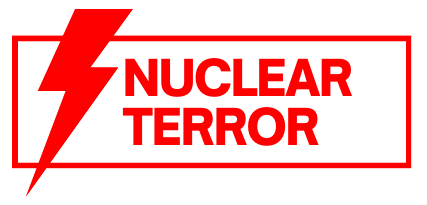Are you aware that despite its aim to prevent the spread of nuclear weapons, the Treaty on the Non-Proliferation of Nuclear Weapons (NPT) faces several limitations? In this discussion, we will explore the challenges and constraints associated with this significant multilateral treaty. From the lack of universal participation to the slow progress in disarmament efforts, the NPT’s effectiveness has been hindered by various factors. Additionally, the ambiguity in treaty provisions and noncompliance by certain states pose further obstacles. But what are the implications of these limitations? And how do major nuclear powers contribute to nuclear disarmament? Join us as we unravel the complexities and delve into the limitations of the NPT, paving the way for a deeper understanding of global efforts to create a world free from the threat of nuclear weapons.
Lack of Universal Participation
Despite being opened for signature in 1968 and entering into force in 1970, the Treaty on the Non-Proliferation of Nuclear Weapons (NPT) lacks universal participation due to the non-signatory status of India, Pakistan, and Israel. This lack of universal participation poses challenges to the treaty’s effectiveness, enforcement, and the non-nuclear states’ access to nuclear technology.
The NPT’s effectiveness relies on the collective commitment of all states to its provisions. However, the non-participation of India, Pakistan, and Israel undermines the treaty’s goal of preventing the spread of nuclear weapons. These states are known or suspected to possess nuclear weapons, which raises concerns about the effectiveness of the treaty in achieving its disarmament objectives.
Furthermore, the non-participation of these states also hampers the enforcement of the NPT. Without their participation, it becomes difficult to ensure safeguards compliance and prevent the illicit transfer of nuclear technology. This lack of participation creates a gap in the global nonproliferation regime, making it harder to detect and deter potential violations of the treaty.
Additionally, the non-nuclear states’ access to nuclear technology for peaceful purposes may be hindered by the non-participation of India, Pakistan, and Israel. These states possess advanced nuclear capabilities and expertise, which could contribute to the development of peaceful nuclear energy programs. However, their non-signatory status limits the opportunities for cooperation and technology-sharing, potentially impeding the progress of non-nuclear states in accessing nuclear technology for peaceful purposes.
Challenges in Disarmament Efforts
The challenges in disarmament efforts persist as nuclear weapon states face obstacles in fulfilling their obligations outlined in the Treaty on the Non-Proliferation of Nuclear Weapons (NPT). One of the main challenges is the verification of compliance with disarmament obligations. Ensuring that nuclear weapon states are actually reducing their arsenals and dismantling their weapons is a complex and time-consuming process. This requires extensive monitoring and verification measures to ensure transparency and build trust among states.
Another challenge is the implementation of safeguards to prevent the diversion of nuclear materials for military purposes. The NPT allows states to access nuclear technology for peaceful purposes, but it also requires them to implement safeguards to ensure that these technologies are not used for the development of nuclear weapons. However, ensuring the effective implementation of these safeguards can be challenging, as it requires cooperation and transparency from states.
Furthermore, multilateral negotiations play a crucial role in disarmament efforts. However, reaching consensus among nuclear weapon states on specific disarmament measures can be difficult due to conflicting national interests and security concerns. This often leads to slow progress in disarmament efforts, as states struggle to find common ground and make meaningful commitments.
To provide a visual representation of the challenges in disarmament efforts, the table below outlines some of the key obstacles faced by nuclear weapon states:
| Challenges in Disarmament Efforts |
|---|
| Verification of compliance |
| Safeguards implementation |
| Multilateral negotiations |
Ambiguity in Treaty Provisions
As we explore the challenges in disarmament efforts, it is important to address the issue of ambiguity in the provisions of the Treaty on the Non-Proliferation of Nuclear Weapons (NPT). The NPT, while serving as a crucial framework for preventing the spread of nuclear weapons, has faced criticism due to the ambiguity in its provisions. One of the main concerns is the legal interpretation of the treaty, which can vary among states and lead to different understandings of its obligations. This ambiguity has created treaty loopholes that can be exploited by states seeking to acquire nuclear weapons or engage in nuclear activities that go against the treaty’s objectives.
Additionally, the implementation of the NPT has been challenging due to the ambiguity in its provisions. The effectiveness of safeguards, designed to ensure compliance with the treaty, is often questioned. States may interpret the treaty in a way that allows them to pursue nuclear activities for peaceful purposes while also potentially advancing their nuclear weapons capabilities. This raises concerns about the overall effectiveness of the treaty in achieving its goals.
Furthermore, the ambiguity in the provisions of the NPT has contributed to difficulties in ensuring treaty compliance. States may exploit loopholes or engage in activities that are technically compliant with the treaty but undermine its spirit. This makes it challenging to hold states accountable for their actions and maintain the integrity of the treaty.
Difficulties in Implementation and Interpretation
Difficulties arise in the implementation and interpretation of the Treaty on the Non-Proliferation of Nuclear Weapons (NPT) due to varying understandings of its provisions among states and the potential for exploitation of loopholes in the treaty’s obligations. These challenges can hinder the effectiveness of the NPT and undermine its goals of disarmament and nonproliferation. Here are some key difficulties encountered in the implementation and interpretation of the NPT:
- Implementation challenges: States face difficulties in translating the treaty’s provisions into actionable steps. This includes issues related to verifying compliance and ensuring the secure storage and dismantlement of nuclear weapons.
- Interpretation issues: Different states may have divergent interpretations of the treaty’s provisions, leading to disagreements and disputes. This can create complications in achieving consensus on key issues and impede progress towards disarmament.
- Compliance difficulties: Some states may struggle to fully comply with the obligations outlined in the NPT. This can be due to technical, political, or security constraints, as well as the lack of universal adherence to the treaty.
Addressing these challenges requires close cooperation, transparency, and dialogue among states. Efforts should be made to clarify and strengthen the treaty’s provisions, enhance verification mechanisms, and promote a shared understanding of disarmament challenges. By addressing these difficulties, the NPT can better fulfill its mission of preventing the spread of nuclear weapons and promoting global security.
Slow Progress in Nuclear Disarmament
Despite the ongoing challenges in the implementation and interpretation of the NPT, the slow progress in nuclear disarmament remains a pressing concern. While the NPT requires nuclear weapon states to pursue disarmament, the actual reduction of nuclear weapons has been limited. This is evident in the slow pace of disarmament commitments by nuclear weapon states, which have not fully lived up to their obligations. Additionally, the focus on modernization programs has diverted attention and resources away from disarmament efforts.
To illustrate the slow progress in nuclear disarmament, consider the following table:
| Nuclear Weapon States | Number of Nuclear Warheads (2021) |
|---|---|
| United States | 3,750 |
| Russia | 4,490 |
| China | 350 |
| France | 290 |
| UK | 215 |
As shown in the table, the nuclear weapon states still possess a significant number of nuclear warheads, which raises concerns about their commitment to disarmament. Furthermore, the peaceful use of nuclear energy and safeguards obligations have also been overshadowed by the focus on military applications.
Noncompliance and Erosion of Confidence
Noncompliance with the provisions of the NPT and the erosion of confidence in its effectiveness have become significant challenges in the realm of nuclear disarmament and nonproliferation efforts. These challenges pose threats to global security and hinder the achievement of the treaty’s goals.
To grab your attention, here are three key aspects related to noncompliance and erosion of confidence:
- Treaty review process:
- The NPT includes a review process every five years to assess its implementation and address challenges.
- However, disagreements among states on how to address noncompliance have often complicated previous review cycles.
- The effectiveness of the review process in addressing noncompliance needs improvement.
- Safeguards obligations:
- Non-nuclear weapon states are obligated to adhere to safeguards measures implemented by the International Atomic Energy Agency (IAEA) to ensure the peaceful use of nuclear technology.
- Noncompliance with safeguards obligations undermines confidence in the treaty and raises concerns about the diversion of nuclear materials for military purposes.
- Non-nuclear weapon states’ obligations:
- These states have a responsibility to refrain from seeking or acquiring nuclear weapons.
- Noncompliance with nonproliferation obligations increases the risk of nuclear proliferation and destabilizes regional and global security.
Consequences of noncompliance include diplomatic repercussions, economic sanctions, and the potential erosion of trust among states. To address noncompliance, it is essential to strengthen the treaty’s review process, enhance safeguards implementation, and promote dialogue and cooperation among states to build confidence and ensure compliance with the NPT.
Implications of Non-Signatory States
The involvement of non-signatory states in the Treaty on the Non-Proliferation of Nuclear Weapons (NPT) has significant implications for global nuclear disarmament and nonproliferation efforts. The decision of certain states to not sign the NPT has important consequences for nonproliferation efforts. Non-signatory states are not bound by the treaty’s provisions and can potentially pursue the development and acquisition of nuclear weapons, leading to an increased risk of nuclear proliferation. This has raised concerns about the potential for an arms race, as other states may feel compelled to acquire nuclear weapons in response to the actions of non-signatory states.
Furthermore, the absence of non-signatory states from the NPT also has regional security implications. The presence of nuclear weapons in a region can create instability and heighten tensions between states. Non-signatory states that possess or pursue nuclear weapons can undermine regional security, leading to increased conflict and the potential for nuclear use.
The involvement of non-signatory states also poses challenges for treaty enforcement. Without the commitment of these states to the NPT, it becomes difficult to ensure compliance with the treaty’s provisions and safeguards. This can undermine the effectiveness of the NPT in preventing the spread of nuclear weapons and maintaining global nuclear stability.

